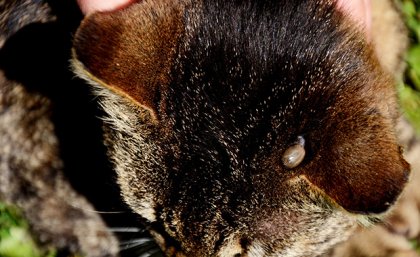
For the first time University of Queensland scientists have been able to make a prediction about the severity of upcoming tick seasons to help vet surgeries and pet owners prepare.
A team led by Professor Stephen Barker at UQ’s School of Chemistry and Molecular Biosciences has been studying the link between the weather and the number of tick paralysis cases in dogs and cats and has used historic data to build a model.
“This is the first year we’ve been able to make a prediction, based on firm data, of the likely number of tick paralysis cases in the 2024 season,” Professor Barker said.
“Previous studies have established that the tick risk to pets in any spring and summer period in eastern Australia is linked to the weather the previous summer when eggs were laid.
“If it is hot and dry many will die but if it is mild and wet, many will survive to reach hatch maturity the following spring.
“That’s when ticks are looking for hosts and are the most dangerous for pets and people.”
The new model was tested with climate and vet data from previous years and shown to have an error rate of just 1.3 per cent.
The model was then run using weather information from the 2023-24 summer in southeast Queensland.
“Our model predicts that 10 per cent of vet consultations on the Sunshine Coast, 5 per cent in Brisbane and 7 per cent on the Gold Coast are expected to be tick paralysis cases this season,” Professor Barker said.
“From 2021 to 2023 around 10 per cent of vet visits in eastern Australia were for tick paralysis so we see this result as a prediction that 2024 will be an average tick season.”
“This prediction should by no means make pet owners complacent.
“An average season still means 4,000 to 5,000 vet visits in eastern Australia are tick-related.
“Sadly 1 in 10 of those pets die from the toxin the ticks inject or are euthanised because they cannot be saved.
“And of course there are many pets in remote areas that die without making it to a vet.”
Professor Barker says keeping up with preventative treatments and keeping dogs on defined walking paths in bushland areas are important ways to reduce the risk.
The research was published in Veterinary Parasitology.
Media contacts
Professor Stephen Barker
s.barker@uq.edu.au
+61 448 628 094
UQ Communications
communications@uq.edu.au
+61 429 056 139.
.jpg)










